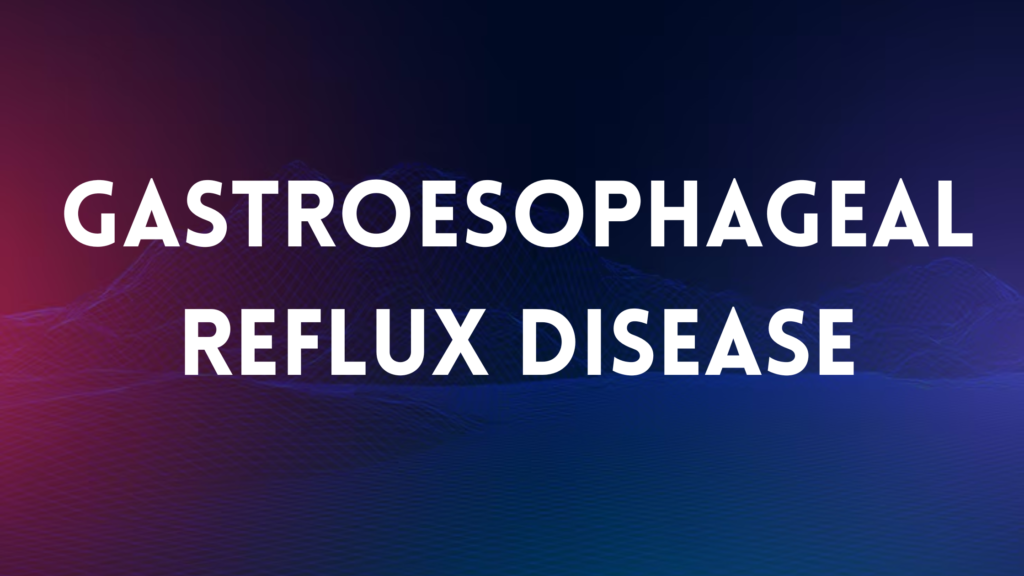🍽️ Gastroesophageal Reflux Disease (GERD) – Overview
GERD is a chronic digestive disorder where stomach acid or contents flow back (reflux) into the esophagus, causing irritation and symptoms like heartburn.
📉 What Happens in GERD?
- The lower esophageal sphincter (LES), a valve between the esophagus and stomach, fails to close properly.
- Acidic stomach contents flow backward into the esophagus.
- This causes inflammation and damage to the esophageal lining.
🩺 Symptoms:
- Heartburn (burning sensation in the chest)
- Regurgitation (acid or food coming up into the throat or mouth)
- Chest pain
- Difficulty swallowing (dysphagia)
- Chronic cough, hoarseness, or sore throat
- Feeling of a lump in the throat (globus sensation)
- Worsening symptoms when lying down or after meals
🧬 Causes and Risk Factors:
- Weak or relaxed LES
- Hiatal hernia
- Obesity
- Pregnancy
- Smoking
- Certain foods and drinks (spicy, fatty foods, caffeine, alcohol, chocolate)
- Medications (e.g., beta-blockers, calcium channel blockers)
- Delayed stomach emptying
🔍 Diagnosis:
- Clinical symptoms and history
- Upper endoscopy (esophagogastroduodenoscopy – EGD): To check for esophageal damage or complications
- 24-hour pH monitoring: Measures acid exposure in the esophagus
- Esophageal manometry: Assesses LES pressure and esophageal motility
💊 Treatment:
🧂 Lifestyle modifications:
- Avoid trigger foods and beverages
- Eat smaller meals
- Avoid eating 2-3 hours before bedtime
- Elevate the head of the bed
- Lose weight if overweight
- Quit smoking
💊 Medications:
- Antacids (neutralize acid)
- H2 receptor blockers (reduce acid production) — e.g., ranitidine (limited use), famotidine
- Proton pump inhibitors (PPIs) (strong acid suppression) — e.g., omeprazole, esomeprazole
- Prokinetics (improve stomach emptying, less commonly used)
🏥 Surgery (for severe or refractory cases):
- Nissen fundoplication — wrapping the top of the stomach around the LES to strengthen it
- Other less common procedures or endoscopic treatments
